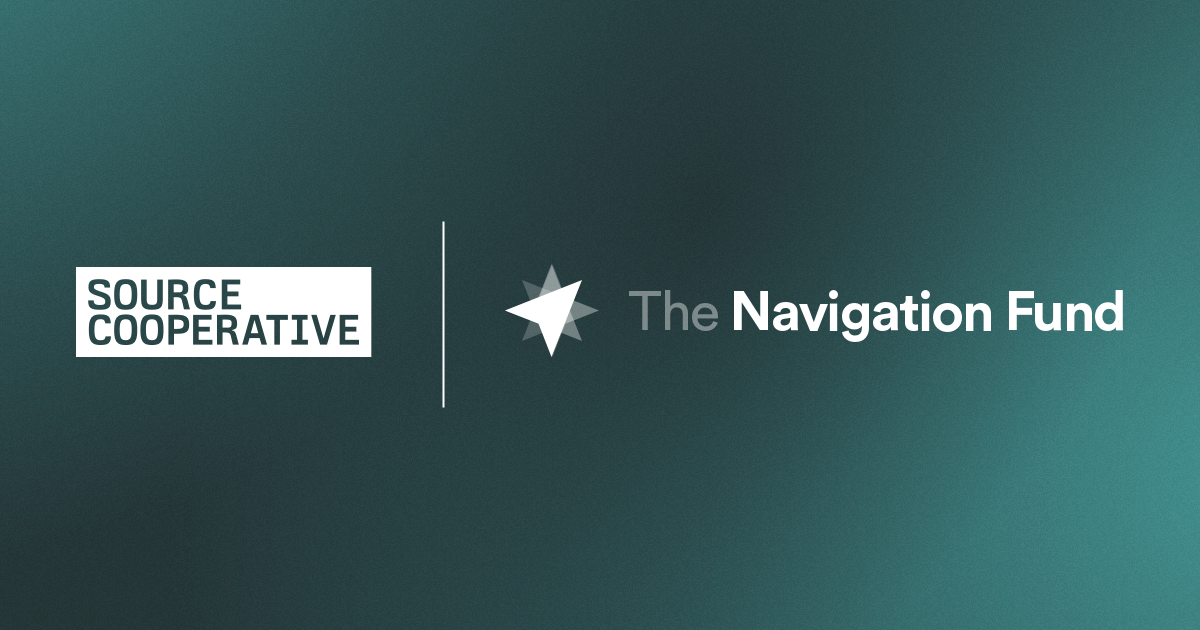Grant from Navigation Fund to Support Source Cooperative

We are happy to announce that Radiant Earth has received funding from The Navigation Fund’s Open Science Initiative to accelerate development of Source Cooperative, our data publishing utility.
A little over a year ago, we published a blog post titled What is Source Cooperative explaining why we believe that object storage is an underutilized technology for data sharing and why we’re building Source to fix this. We are lucky to have found support from the Navigation Fund to continue development of what we hope will become a widely-used and trustworthy source of data to accelerate scientific research.
To date, effectively all of the code written for Source Cooperative has been written by Kevin Booth, who, after five fantastically productive years at Radiant Earth, has recently taken a new role as a software engineer at Umbra. Over the past year, Kevin built many of the features that we outlined in What is Source Cooperative, including search functionality, self-service organizational profile creation, and a new API. In addition to all of that, he created and open sourced an entirely new data proxy and open sourced our front end. Kevin set Source up for success and we look forward to serving him as a customer in the future.
While we’re still in beta, Source has become a powerful and useful tool. Source currently hosts over 450TB of data (thanks to generous support from AWS and Azure) shared by 66 organizations or individuals, and receive over 3 million requests for data each month, serving around 2.5TB of data per month. At the time of writing this post, searching GitHub for code that refers to data hosted in Source yields 186 results. These numbers tell us that we’re building something that is useful to people, but we’re merely getting started.
With support from The Navigation Fund, we are working to make Source easier to use and into a service worth paying for. Creating a service worth paying for is a priority for us because we believe that financial self-sustainability should be a core feature of Source – making it a durable and trusted service for data publication.
To accomplish this, we have already entered into an agreement with ecoVoice to optimize our cloud architecture, focusing on security, reliability, and scalability. Next steps include engaging product design, product marketing, and funding experts to help us develop a strategy and materials to make Source more accessible to more researchers. While we are very grateful to our existing users, we recognize that they are definitely early adopters and that there is a wide world of potential users that we are not yet reaching.
We also have some exciting plans in the works to develop a more active community of contributors to our open source code base. We have found many fellow travelers who share our interest in making object storage more useful for sharing scientific data on the open web and we’re excited to work in public with them.
We have much more planned that we will announce throughout the coming year.
As we said a year ago, we believe that no single entity should own the systems required to share information necessary to solve global challenges, which is why we’re building Source within Radiant Earth which is a nonprofit. This is a slow and difficult path, but we’re proud of how far we’ve come, and we are deeply grateful to The Navigation Fund for their support of our work to make scientific knowledge more accessible and impactful.